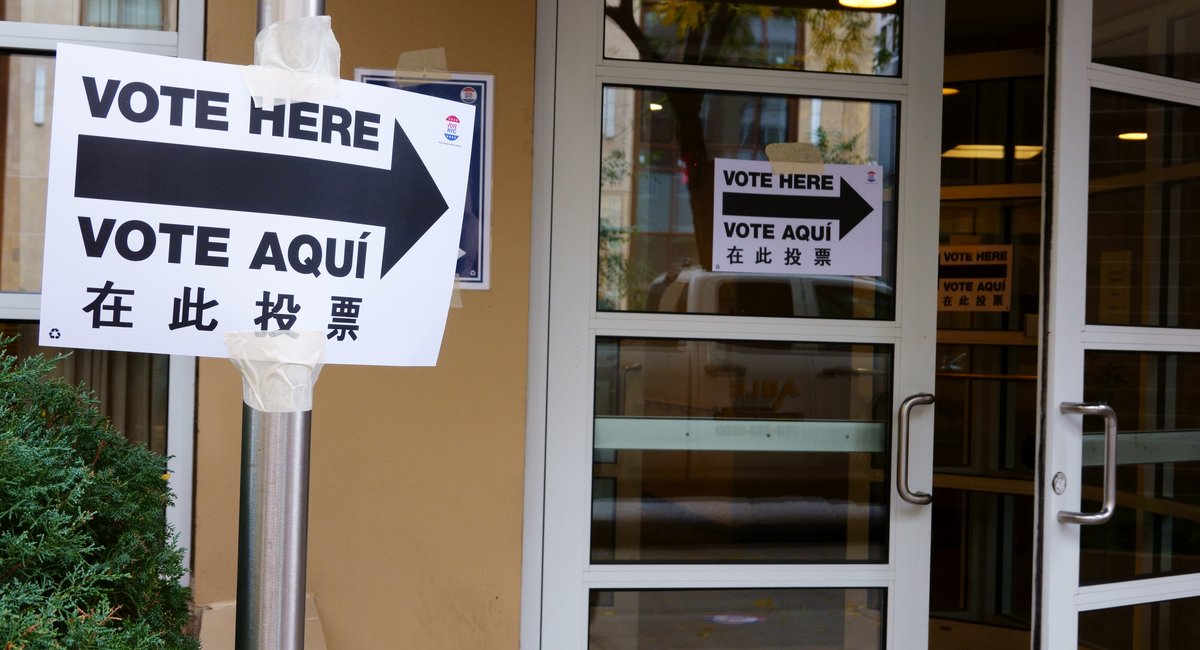A New York City law that would have granted certain noncitizens the right to vote in city elections was found unconstitutional on Wednesday in a 3-to-1 opinion issued by the state Supreme Court Appellate Court, Second Department.
That opinion upholds most of a lower court ruling issued in 2022 by the Richmond County State Supreme Court on Staten Island.
The law, known as Local Law 11, would have granted legal permanent residents, including those with green cards, the right to cast a ballot in the races for mayor, public advocate, city comptroller, City Council and borough president. It would have also required the New York City Board of Elections to set up a separate voter registration system for a new class of “municipal voter.”
The opinion issued Wednesday came after oral arguments held over the summer in response to an appeal filed by Mayor Eric Adams, the city Law Department and several individual residents seeking to overturn the lower court’s decision and allow nearly a million legal permanent residents the right to participate in local elections.
In the majority opinion, written by Justices Angela Iannacci, Paul Wooten and Helen Voutsinas, the court took issue with how the law was enacted through legislation as opposed to a ballot referendum, which is required under the Municipal Home Rule Law when changing the method of how people are elected to local offices.
“The enactment of the Local Law without a referendum improperly obviates the fundamental right of the voters to participate in the electoral process,” the justices wrote in the majority opinion.
They also noted that changing who could cast a ballot in local elections could also change who could hold those elected offices, suggesting the law could allow noncitizens to hold city elected positions.
In her dissent, Justice Lillian Wan wrote that the majority’s opinion threatened to limit municipalities’ ability to make decisions for themselves about their local elections.
“The majority, by deeming the noncitizen voting law invalid, effectively prohibits municipalities across the state from deciding for themselves the persons who are entitled to a voice in the local electoral process,” Wan wrote.
She added that the majority’s determination, “also disenfranchises nearly one million residents of the City, despite the fact that its people’s duly elected representatives have opted to enfranchise those same residents.”
Election law experts said the decision to nullify the law, in one part based on the need for a referendum, could set up a challenging path forward for supporters in the current charged political climate.
“Right now, with all the noise about migrants and the way people feel about that, that’s going to bleed over,” said Sarah Steiner, an election law attorney in New York City who was not directly involved with the case. “I think the timing is not right for a referendum.”
Opponents of the law applauded the majority opinion.
“You can’t just on a whim say, ‘Alright now we’re going to allow hundreds of thousands of people, even though they are noncitizens, the right to vote and choose in local municipal elections,” said Vito Fossella, the Staten Island borough president who sued the city the day after the law took effect in 2022.
A spokesman for the city Law Department said the agency was reviewing the ruling and determining next steps. A spokesperson for the mayor’s office did not immediately respond to a request for comment.
Advocates supporting the law said they were also exploring their options and did not rule out an appeal to the state’s highest court, the New York Court of Appeals.
“The right to vote extended by Local Law 11 presented an opportunity to remedy the contradiction between calling many immigrants ‘essential’ to our economy, essential to our workforce, essential to our society,” said Cesar Ruiz, an attorney with LatinoJusticePRLDEF, which is representing residents who would have gained voting rights under the law.
“It really gave them the promise of being able to participate meaningfully,” said Ruiz, who said he planned to talk the decision over with his clients as they determine what comes next.

Leave a Reply